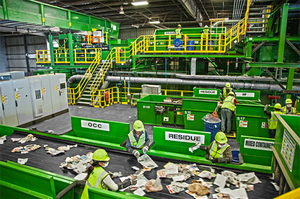Global organized crime has contributed to an average of $19.6 million per case in pollution-related offenses, according to INTERPOL. The agency recently released a report examining the effects of organized crime activities (OC) involing pollution crime (PC) to the environment, with the intent to provide information to INTERPOL member countries.

Global organized crime has contributed to an average of $19.6 million per case in pollution-related offenses, according to INTERPOL.
The agency recently released a report examining the effects of organized crime activities (OC) involing pollution crime (PC) to the environment, with the intent to provide information to INTERPOL member countries.
INTERPOL stated that: "'pollution crime' as an umbrella term describing a range of criminal activities involving the trafficking and/or the illegal management of potential contaminants, and resulting in environmental pollution. It includes the following non-exhaustive types of crime: waste crime; marine pollution crime; fuel, oil and gas smuggling and illegal refineries; illegal use and trade in chemicals and plastic; and carbon trading crime."
An analysis of 27 cases in member countries was completed as part of the research. The cases focused on waste crime, which involved environmentally-sensitive commodities. INTERPOL then studied ten key characteristics of the relationship between suspects and their "modus operandi" and validated the results with national experts at a multiregional meeting.
So, what drives pollution crime?
"On the one hand, organized criminal groups expand and/or diversify their illicit activities to infiltrate the waste management sector and other profitable markets involving environmentally sensitive commodities," INTERPOL explained. "These criminal groups usually have a hierarchical structure with a centralized command. They commit mainly illicit waste disposal (sometimes coupled with waste trafficking), fraud and racketeering. The relatively simple logistic organization and limited number of stakeholders involved Page 9 of 49 in these offences allow the group to manage the entire crime cycle through a centralized decisionmaking process and a strict chain of command."
The agency also noted that legally-operating companies in the environmental compliance space often turn toward illegal business practices to grow profits.
INTERPOL noted that "from an organizational perspective they appear more flexible and decentralized chains of individual suspects or clusters of various companies/criminal groups. Such structure better serves the purpose of trafficking waste across borders. The complex logistics of transnational waste trafficking requires a more sophisticated division of roles among suspects with diverse capacities and expertise, who cooperate opportunistically at the different stages of the criminal activity."
About the Author(s)
You May Also Like




